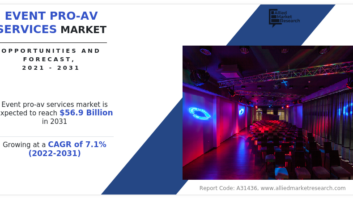Jabra research has revealed that over a third (35 percent) of UK knowledge workers say poor audio or video quality is the biggest cause of misunderstanding while using communication tools and making working life harder. Jabra commissioned research group Censuswide to survey 2,000 UK-based knowledge workers.
The survey, which included a total of 6,000 respondents including those based in the US, France and Germany, took place between 16 to 20 December 2024. The respondents were asked a series of questions around how technology influenced their ability to complete tasks effectively at work. The survey also explored how AI was used in the workplace.

The results show miscommunication has a real human cost. 25 percent of workers feel like they are let down and misunderstood by the tools, 24 percent say they spend extra time clarifying their points and 18 percent admit to missing important details and deadlines. This can have a knock-on effect causing one in five (22 percent) to feel embarrassed or lose confidence among peers.
For individual workers, being misunderstood can negatively affect their perception at works and career progress. 13 percent say poor communication is causing a strain on relationships with colleagues, and 14 percent believe this is holding them back in their careers causing them to miss out on professional opportunities (14 percent).
Nigel Dunn, vice president & managing director, EMEA North at Jabra, said: “Too many UK workers are still being held back by poor-quality audio and video – spending valuable time clarifying conversations, second-guessing what was said, or worse, missing key details altogether.
“Misunderstandings caused by unclear speech, people talking over each other, or glitchy connections don’t just derail meetings, they chip away at confidence, strain working relationships, and can even lead to individual’s stalling in their careers. It’s what we call ‘muted potential’ in action.”
Despite AI tools becoming more prevalent in the workplace there is an underlying wariness amongst UK workers. The overwhelming majority (93 percent) still trust people more than using AI tools. This level of scepticism is on par with German workers, with 93 percent trusting humans over AI, but higher than French (90 percent) and US workers (88 percent). Half (55 percent) of British workers trust human-sourced information more than AI generated content.
“Many people still place more trust in human communication than AI despite its potential to boost productivity,” said Dunn. “But to truly benefit, we need to start with the basics and enable employees to communicate clearly with total confidence that they can be heard accurately, whether speaking to a colleague, a virtual assistant or relying on transcription tools.”







